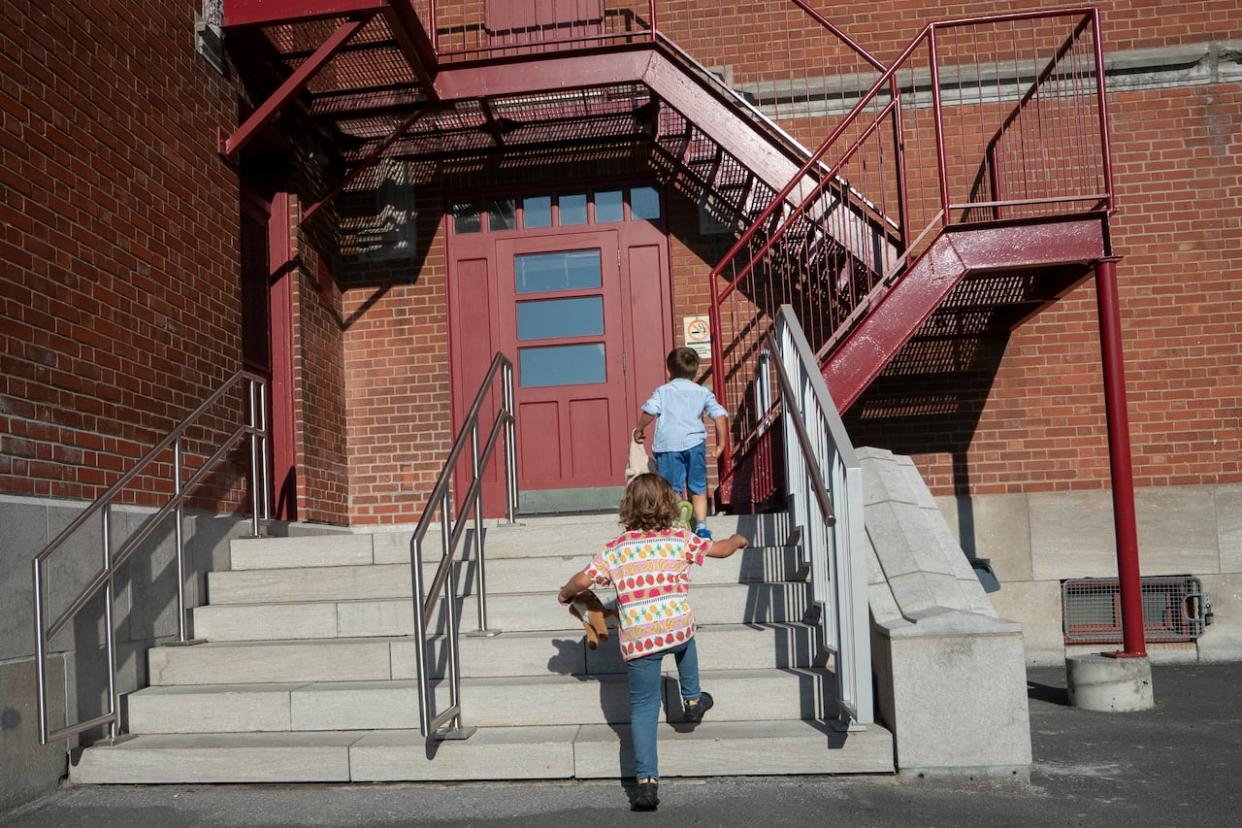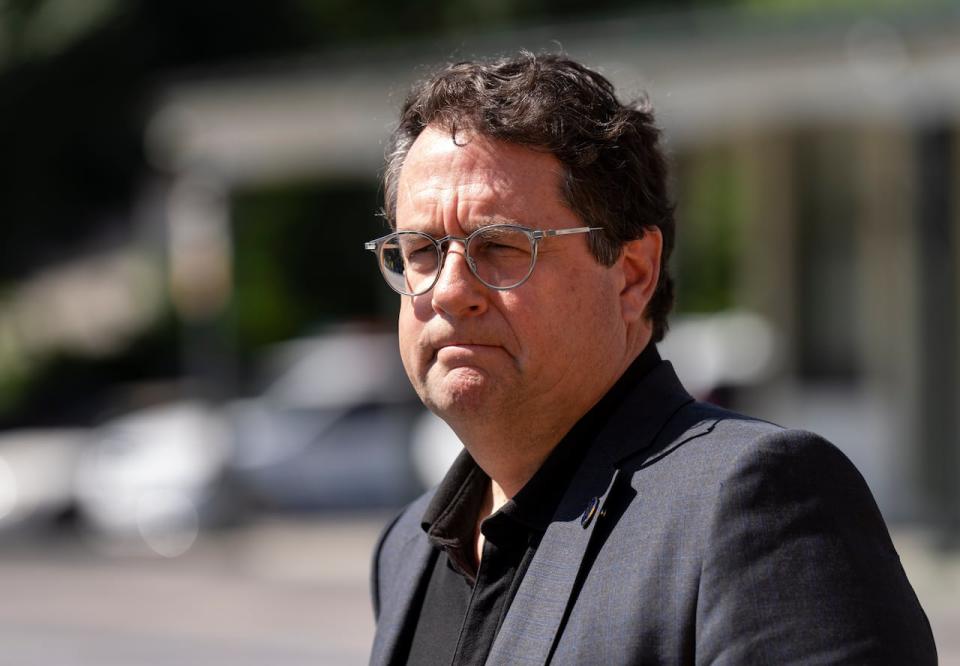Academic requirements suddenly return to pre-pandemic standards in Quebec schools

In an unexpected move as young Quebec students get back to school, Education Minister Bernard Drainville is essentially hitting the reset button by raising the academic bar back up to pre-pandemic levels.
Since December 2020, teachers had reduced the subject matter presented by approximately 75 per cent. The significance of ministry exams dropped from 50 to 20 per cent of the final grade for students in Grades 4 and 5, and from 20 to 10 per cent for younger pupils.
Reducing subject matter and the impact of compulsory exams on final grades was a recommendation by the ministry's education council, the Conseil supérieur de l'éducation, which highlighted academic challenges brought on by the COVID-19 pandemic.
"The pandemic is over. My goal was to return to normal as quickly as possible, to resume teaching the full curriculum," said Drainville, speaking to journalists in Drummondville, Que., during the inauguration of a new school there.
"We want to pick up where we left off before the pandemic, and we definitely do not want to lower our standards. That's very important."
He said the Quebec government does not want to send the message that the ministry exam is less important now than it was before the pandemic.
"We want to send a message that the ministry exam is very important, and by returning to 50 per cent, the message we send to school teams and to students is: prepare well for the ministry exam," Drainville said.
There will be a normal transitional period, he added, but "I think it will go well."

Quebec Education Minister Bernard Drainville said on Tuesday it is time to return to pre-pandemic standards, which put higher value on ministerial exams and covered more material. (Christinne Muschi/The Canadian Press)
Julie Myre-Bisaillon, a professor in the Université de Sherbrooke's faculty of education, said the minister is mistaken.
She finds it surprising that the minister made this announcement just as students are headed back to school rather than in June, which would have allowed teachers more time to prepare.
"He announces it abruptly, without notice, without preparation, and also without consultation regarding how things have gone in recent years," she said on Radio-Canada's Tout un matin.
We have actually learned that slowing down the pace in schools over the past few years is a good thing, she said.
"We believe that students don't necessarily need to learn more but to learn better. And these announced measures don't align with that," said Myre-Bisaillon.
Myre-Bisaillon said she is particularly skeptical about the significance of provincewide standardized ministerial exams in students' final grades.
"Teachers and specialists were pleased to see these percentages reduced because these exams don't measure students' learning; rather, they gauge how the education system regulates itself," she said.
"In fact, preparing for these exams is not a learning experience. We spend valuable classroom time practising past exams and technically preparing to pass them. It's precious time lost."
By putting so much value in these exams, the province is once again putting the school at the service of evaluation rather than at the service of students' learning, said Myre-Bisaillon.
The professor is, however, not surprised by the minister's approach — announcing a sudden decision without any consultation.
She referenced Drainville's education reform, Bill 23, which, tabled in May, aims to give the Coalition Avenir Québec (CAQ) government more power over the province's education system. The bill also seeks to reduce the role of the Conseil supérieur de l'éducation, she said.
It's unfortunate the council wasn't consulted, she added, because it has been "a significant advisory body in Quebec for a very long time."


